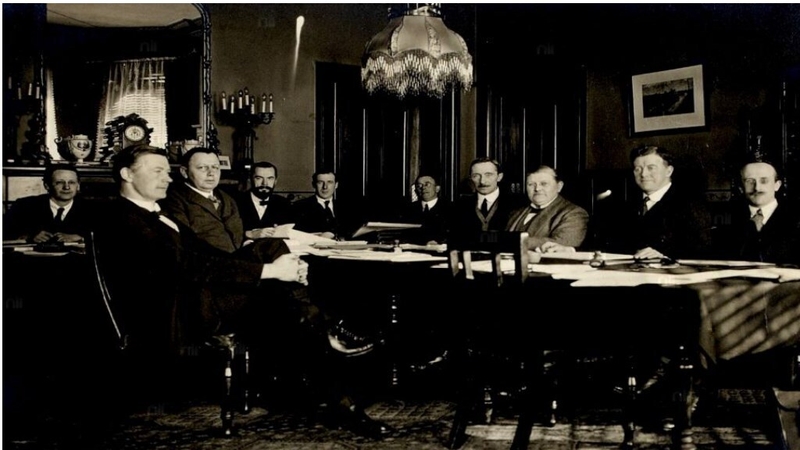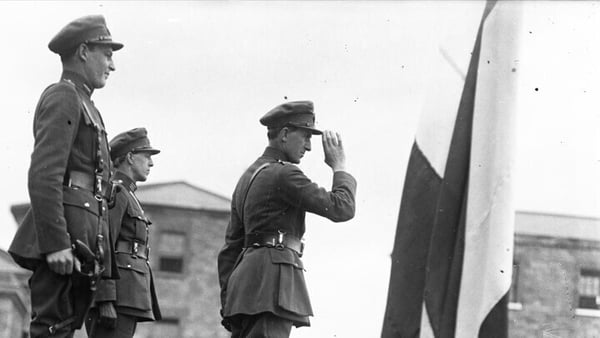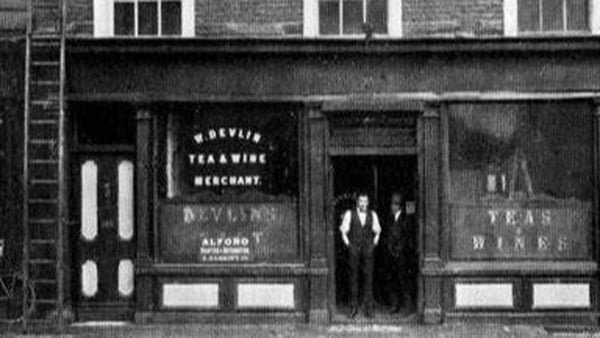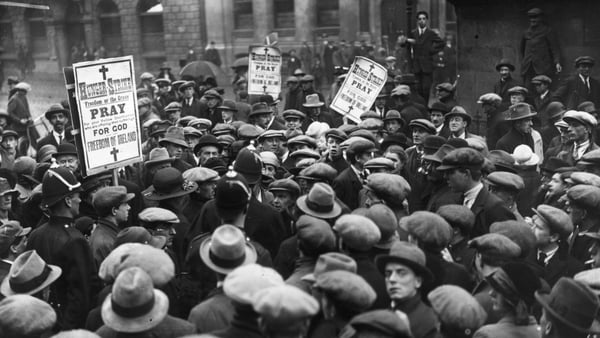On 6 December 1922, the Constitution of the Irish Free State came into effect. It was endorsed by both the Dáil and the British parliament in Westminster.
The endorsement was not a formality. It meant that the new Irish Free State could begin to govern itself, by rules and laws it had written itself.
There had been an Irish government in office since the previous January, when the British handed over the centre of administration in Ireland, Dublin Castle.
But that was a provisional government, able to rule but not able to make its own laws, effectively it was in limbo until the new Constitution was endorsed.
The Constitution was written to put into effect the Articles of the Anglo-Irish Treaty, that had been signed exactly a year earlier then approved by the Dáil by a narrow majority in January.
The document defined the new State as a Dominion of the British Empire, equal in status to countries like Australia, New Zealand, Canada and South Africa.
The 1922 Constitution contained a Bill of Rights, which the constitutions of other Dominions did not.
It guaranteed freedom of speech, of religion, of conscience, of assembly, the right to a trial by jury, the right to invoke Habeas Corpus (which prevented people being detained by the authorities without due cause). Free primary school education for all was also guaranteed.
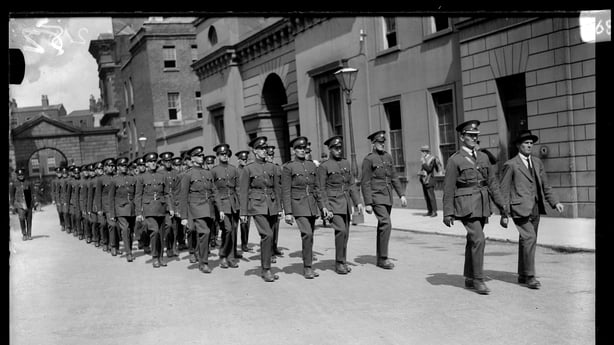
The right to vote in elections was extended to women under 30, before a similar move was made in the United Kingdom.
Provisions were made to protect minorities, particularly the unionist population in the part of Ireland outside the northeast counties on the island. These included the use of the Proportional Representation voting system in elections still in use today, and the creation of an Upper House of the Oireachtas, ie the Senate or Seanad.
The Constitution provided for no established religion. In fact, there are almost no references to god in it at all, and the drafters had to insert the word "god" into the preamble, because they were accused of drawing up a "godless" constitution.
But the Constitution did not have universal acceptance in Ireland.
To those who had opposed the Treaty since its signing a year before, there was nothing in the new document to inspire loyalty, because the Constitution sprang directly from the Treaty.
To its opponents, the Constitution repeated all that was wrong about the Treaty, especially the subordinate status afforded the new state as a Dominion inside the British Empire, not the independent republic that had been proclaimed in 1916.
There were specific constraints on the new State's freedoms in the Constitution. Their effectiveness has been disputed, but what is not disputed is that they existed.
Those constraints included the recognition as the king as head of state, represented by a governor-general; The need for all members of the Oireachtas to take an oath of allegiance to the Constitution of the Free State and declare fidelity to the king; the supremacy of the Treaty over the Constitution, the need to refer legislation to the British king for approval; the ability of Westminster to withhold approval of Irish legislation; the primacy of Westminster legislation over Dublin legislation in areas such as shipping, boundaries, extradition, British military forces.
Article Seven of the Constitution granted access by the British military to facilities in the Free State in time of war or strained relations potentially leading to war. This right of access was only given up by the British in 1938.
The British government insisted that these elements be included in the Constitution. British ministers were already under immense pressure themselves, not to allow the Irish side to water down the "imperial" commitments.
Many of their own people were still angry that the Treaty had been signed at all.
Moreover, existing dominions like Canada, Australia and South Africa were watching the negotiations on the Constitution closely, in the hope of gaining for themselves any concessions made to the Irish.
Indian nationalists saw the Irish struggle for freedom as an example to themselves. The British ministers knew that allowing the imperial commitments in the Treaty to be escaped or relaxed in the Irish Constitution, would only encourage the Indian nationalists even further.
The refusal of the British to accept the first draft of the Constitution precisely because of all the concessions sought by the Irish government, meant that it would not provide a roadmap back from the brink of civil war, which was now inevitable.
An important provision of the Constitution was that Northern Ireland’s parliament could refuse to join the new Free State, an option it exercised immediately.
We need your consent to load this rte-player contentWe use rte-player to manage extra content that can set cookies on your device and collect data about your activity. Please review their details and accept them to load the content.Manage Preferences
